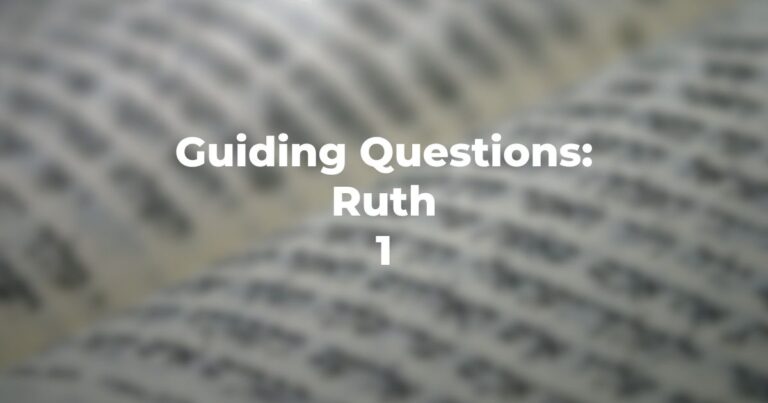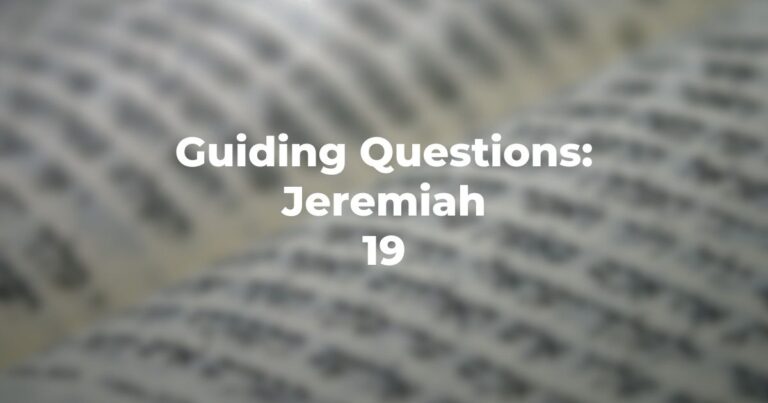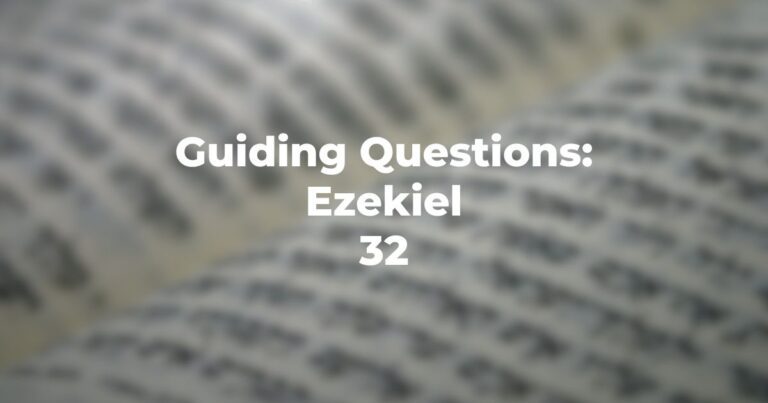- Where or what is Har HaElohim?
- Why are B’nai Yisrael at this Har?
- When was Mosheh last at this location?
- Why did not Mosheh’s family rejoin him sooner?
- Why does Mosheh “go out” to greet his father-in-law?
- What does the phrase “ish lereyehu” imply as to the relationship between Mosheh and Yitro?
- In Mosheh’s review of what had happened in Egypt who is “the hero?”
- How does a “priest of Midian” react to Israel’s God?
- What does “va’yihad” mean?
- Does Yitro (seem to) “convert?”
- Why is Mosheh absent (is he?) at the “meal before God?”
- What is a meal before God?
- Where are Tzipporah and the children while this is transpiring?
- What comes first — “the greater family” or the leader’s own family?
- Does this chapter indicate that age warrants veneration?
- Do true leaders seem pleased with, or jealous of, one another’s success?
- For the average person what is (are) the most convincing arguments for belief – events or theoretical postulates?
- What does it mean “lidrosh Elohim?”
- How does Mosheh spend his “average” day?
- What are “Torot”?
- What is Yitro’s reaction to Mosheh’s daily schedule?
- Is Yitro subtle and indirect or critical and pointed in commenting on Moshe’s schedule?
- Who is giving direction to whom in this narrative?
- What judicial system does Yitro propose?
- What are the characteristics of the leaders proposed?
- What role does Moses play in this system?
- What is “a small matter;” a “big matter?”
- Does Moses accept Yitro’s instruction?
- Does Mosheh then ask for more advice?
- Why does Mosheh send Yitro away?
- Had laws been given to B’nai Yisrael on the basis of which judges should determine a particular case?
- Why did many of the commentators think that this particular section was misplaced?
- Would this chapter indicate that experience should be given careful attention when it recommends?
- Does the “right religion” mean that one cannot learn from others in non-religious matters?
- Does this chapter indicate that ultimate responsibility cannot be shared but intermediate authority can?
- Is the concentration of power detrimental to the socio-political structure according to this narrative?
- Does perpetual accessibility destroy leadership capacity?
- Is the text indicating that “you do not have to do everything yourself” — there are others?
- Is the criterion for selecting judges birth, blood line, strength, status or moral reliability?
- Good advice may be taken but can the “good advisor” outlive his welcome (and/or can more than one person be the “rosh”)?
Author
-

Exploring Judaism is the digital home for Conservative/Masorti Judaism, embracing the beauty and complexity of Judaism, and our personal search for meaning, learning, and connecting. Our goal is to create content based on three core framing: Meaning-Making (Why?), Practical Living (How?), and Explainers (What?).
View all posts




